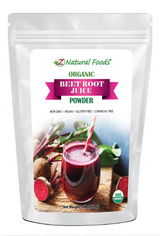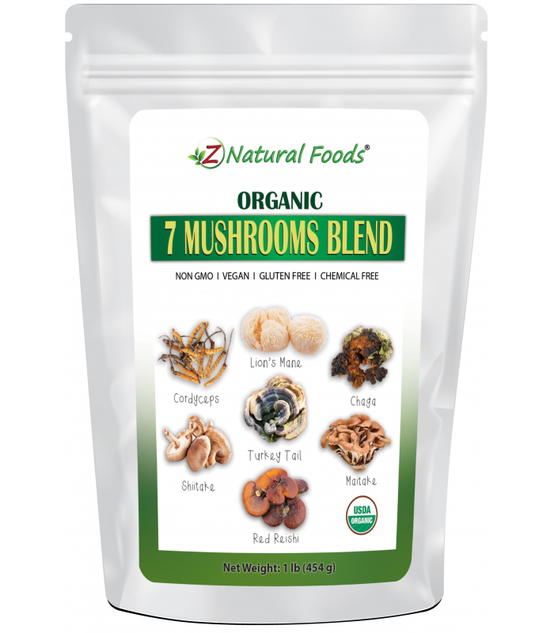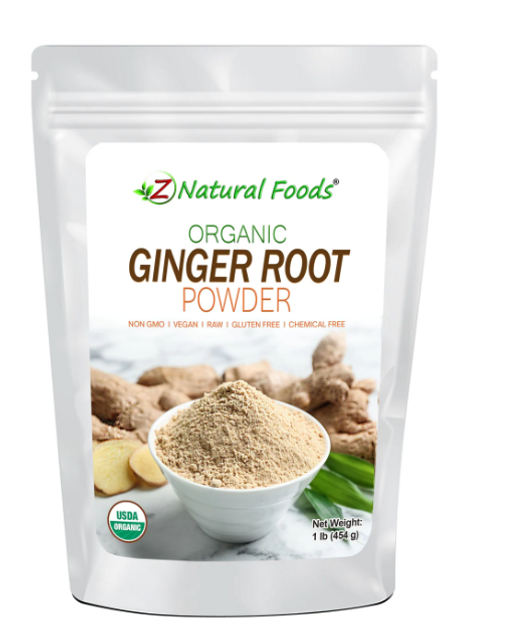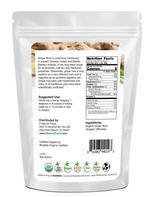Herbal Information on Organic Beet Root in Bulk Powder Form
Names: Beet Root
Package Size: 1 pound
Form: Fine Powder - Certified Organic
Dosage: Follow doctor's instructions for how to use this herb.
Origin: USA
Brand: ZNaturals
Cautions: Do not use if pregnant or nursing.
California Prop 65
Beetroot powder, derived from the dried and ground root of the beet plant (Beta vulgaris), has a history that spans centuries. Here is an overview of its historical development and uses:
- Ancient Roots: Beets have been cultivated for thousands of years, with evidence of their consumption dating back to ancient civilizations such as the Egyptians, Greeks, and Romans. Initially, they were primarily grown for their leaves, which were used as a source of food. The roots were often discarded or used medicinally.
- Medicinal Uses: Beets, including their roots, were used for medicinal purposes in various cultures. They were believed to have a range of health benefits, including promoting digestion and treating various ailments. Ancient Greeks and Romans used beetroot to treat fevers and constipation.
- Culinary Evolution: Over time, the culinary uses of beets evolved. In the Middle Ages, for example, they were used to add color to dishes and as a sweetener in desserts. It wasn't until the 18th century that beets began to be cultivated specifically for their roots, which were then used in various recipes.
- Sugar Beet Innovation: The 18th and 19th centuries saw the development of sugar beets, which contain a high sugar content. This led to the commercial production of sugar from beets, especially in Europe. Beet sugar became an important alternative to cane sugar during times when sugarcane production was limited.
- Beetroot Powder Emergence: The use of beetroot powder as a food coloring and flavoring agent emerged in the 19th century. Its vibrant red color made it a popular choice for adding a natural hue to foods and beverages.
- Nutritional Rediscovery: In the late 20th century, beets regained popularity for their nutritional benefits. They are rich in antioxidants, dietary fiber, and essential vitamins and minerals. Beetroot powder gained attention as a convenient way to incorporate these nutrients into one's diet.
- Sports Performance: Beetroot powder gained significant attention in the world of sports nutrition in the 21st century. Studies suggested that the nitrates in beetroot powder could improve endurance and exercise performance by enhancing oxygen utilization in the body. This led to the use of beetroot supplements by athletes and fitness enthusiasts.
- Health and Wellness Trends: Beetroot powder continues to be popular in health and wellness circles due to its potential benefits, which include supporting cardiovascular health, reducing blood pressure, and improving athletic performance. It is often used as an ingredient in smoothies, juices, and various recipes.
Using Beet Root Powder - An Everyday Routine 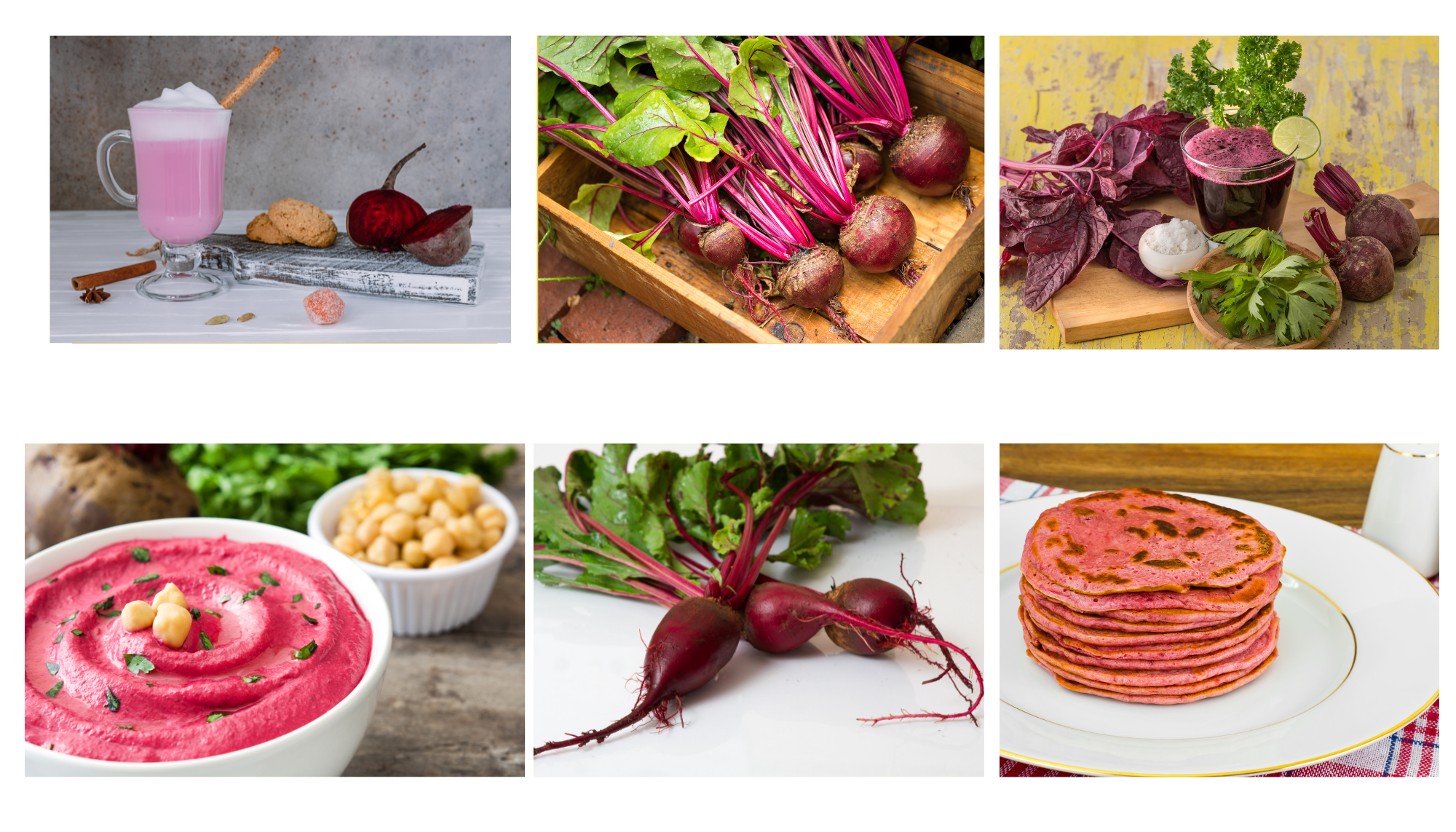
Beetroot powder can be used in a variety of recipes to add color, flavor, and nutritional benefits. Here are a few recipes you can try:
Beetroot Latte:
Ingredients:
- 1 cup milk (dairy or non-dairy)
- 1 tsp beetroot powder
- 1 tsp honey or maple syrup (adjust to taste)
- A pinch of ground cinnamon (optional)
Instructions:
- Heat the milk in a saucepan until hot but not boiling.
- Whisk in the beetroot powder until it's fully dissolved.
- Add sweetener and cinnamon, if desired.
- Pour into a mug and enjoy.
Beetroot Smoothie:
Ingredients:
- 1 cup frozen mixed berries
- 1 banana
- 1 tsp beetroot powder
- 1 cup spinach or kale leaves
- 1 cup water or milk (dairy or non-dairy)
- 1 tbsp honey or maple syrup (optional, for sweetness)
Instructions:
- Combine all the ingredients in a blender.
- Blend until smooth.
- Taste and add sweetener if needed.
- Pour into a glass and serve.
Beetroot Hummus:
Ingredients:
- 1 can (15 oz) chickpeas, drained and rinsed
- 2 tbsp beetroot powder
- 2 cloves garlic, minced
- 3 tbsp tahini
- 2 tbsp lemon juice
- 2 tbsp olive oil
- Salt and pepper to taste
- Water (as needed for consistency)
Instructions:
- Place all ingredients except water in a food processor.
- Blend until smooth, scraping down the sides as needed.
- If the hummus is too thick, add water a tablespoon at a time until you reach your desired consistency.
- Taste and adjust seasoning if necessary.
- Serve with pita bread, crackers, or vegetable sticks.
Beetroot Pancakes:
Ingredients:
- 1 cup all-purpose flour
- 1 tsp baking powder
- 1/2 tsp salt
- 1 tbsp beetroot powder
- 1 egg
- 1 cup milk (dairy or non-dairy)
- 2 tbsp melted butter or oil
- 1 tbsp honey or maple syrup (optional, for sweetness)
Instructions:
- In a mixing bowl, whisk together the dry ingredients: flour, baking powder, salt, and beetroot powder.
- In another bowl, whisk the egg, milk, melted butter or oil, and sweetener (if using).
- Pour the wet ingredients into the dry ingredients and stir until just combined.
- Heat a griddle or frying pan over medium-high heat and lightly grease it.
- Pour ladleful of the pancake batter onto the griddle.
- Cook until bubbles form on the surface, then flip and cook until golden brown.
- Serve with your favorite toppings.
Feel free to adjust these recipes to suit your taste preferences and dietary needs. Beetroot powder can add a unique and nutritious twist to a wide range of dishes.
Laboratory Analysis
Samples are retained from all shipments are thoroughly tested and compared to our extensive reference library of dried herbs and botanicals to verify authenticity. All lot samples are kept for five years and can be traced for verification.
Physical testing involves moisture, volatile oil content, heavy metals, microbiology, thin layer chromatography, and other tests specific to each herb.
Herbal Medicine
Herbal remedies have been used for thousands of years, in all cultures. In this day and age Western Bulk Herbs and Spices should be regarded as an added element to present-day healthcare, and not as a replacement. Botanical herbs ( Teas ) emphasize harmony, support, and balance.
References
https://www.medicalnewstoday.com/articles/beet-root-powder
https://www.healthline.com/nutrition/benefits-of-beets
https://www.ncbi.nlm.nih.gov/pmc/articles/PMC8565237/
https://www.drweil.com/diet-nutrition/nutrition/is-beetroot-powder-good-for-your-health/
https://www.nutrasciencelabs.com/blog/the-power-of-beets-how-beet-supplements-benefit-health-and-fitness


